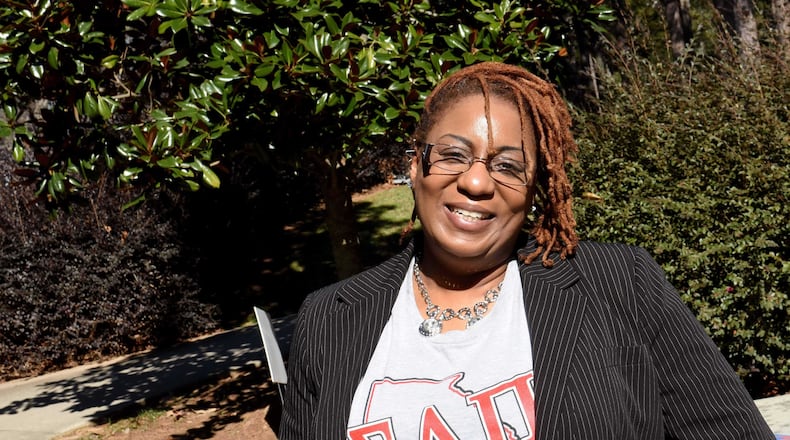Credit: Ryon Horne
Credit: Ryon Horne
Zhareia Smith has had a major struggle since joining the National Guard in 2016, and it’s not the rigor of keeping fit or the possibility of being called into duty at a moment’s notice.
It’s her hair.
“When I first got into the military, I was natural,” the Clayton County resident said, referencing an African American style of hair that is free of the chemicals often used by Black women to straighten their hair. “It was kind of hard for me to do a slicked-back bun or try to keep my hair in a way that is not unkept as the military defines it.”
While Clayton County leaders may not be able to help Smith when she’s on military duty, they have made it easier for her and others to stand by their choices in the workplace or at school when they are in the south metro Atlanta community.
The Clayton County Commission on Tuesday passed the CROWN Act, an ordinance that makes it illegal for county businesses, housing providers or others in public accommodations to discriminate based on cultural hair textures and hairstyles.
The move is part of a national push to address an issue people of color say they face when their natural coifs — including twists, braids, knots and locs — don’t fit in with traditional hairstyle standards.
Efforts to get CROWN (Creating a Respectful and Open World for Natural Hair) ordinances on the books nationwide began in 2019, and has been adopted locally in the city of South Fulton. A similar bill was introduced in the Georgia Legislature last month.
“It’s been a challenge when you have natural hair that comes out of your head and the hair does not represent what people call beauty,” Kim Schofield (D-Atlanta), a backer of the statewide measure, told the Clayton Commission on Tuesday. “But it’s beauty to us.”
Celeste Walley-Jean, a psychology professor at Clayton State University, said code words like “professional” and “well-groomed” send signals to Black people that their hair is not acceptable. When Blacks are asked to change their hair, the message is that they need to change themselves to make others feel more comfortable, she said.
“I hold out hope that the CROWN Act will push some people to start questioning these implicit positions that they take,” she said.
Ashlee Dennis said she faced discrimination after she started growing out her locs, though the signals were subtle. She was told in a previous job that included travel that it wasn’t necessary that she be on the road. Subsequently she went to only one conference.
When she moved to human resources, her replacement — a white woman — began traveling for the company extensively.
“I was like, ‘Wow, it’s just hair,” she said of the experience.
Longtime Clayton County hairdresser Aliyah Johnson said the damage is not only vocational and emotional, but physical.
To fit in, Black women often suffer through years of applying chemical relaxers to straighten their hair or undergo painful weaves to give their locks length, Johnson said. The practices can cause natural hair to break, and baldness in areas where the scalp has been damaged.
After years of relaxing her hair, Johnson went natural a decade ago and has been an advocate of letting your natural hair breathe.
“It’s a mindset that is planted in us from society,” Johnson said of bias against the Black community’s natural hair. “I love helping Black women see what their natural hair can do and to love it. I call myself a personal hair trainer.”
About the Author
The Latest
Featured



